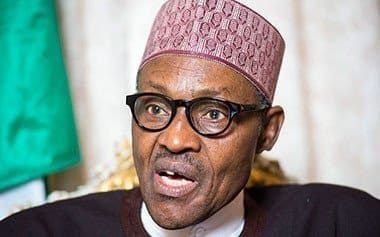NIGERIA’s hope of returning to economic recovery brightened, yesterday, as crude oil price hits an 18-month high of $58 per barrel.
With the proposed 2017 budget based on crude oil price of $42.5 per barrel and 2.2 million barrels daily production, this development translates to additional N500.4 billion revenue inflow outside the budgetary estimates.
The federal government is proposing a budget of N7.28 trillion for the year 2017. The aggregate revenue to fund the 2017 budget, according to the budget framework, is expected to increase over the 2016 estimate of N3.855 trillion by about eight per cent or about N313billion.
Thirty-three per cent of the amount is expected from oil sources while the balance is derivable from non-oil sources in consonance with the government’s renewed focus on diversification of its revenue base.
Though the 2017 budget came against speculation that 2.2 mbpd oil output was too ambitious given the Niger Delta crises which had forced down output to about 1.4mbd mid this year, Minister of State for Petroleum Resources, Dr. Ibe Kachikwu already indicated that the various negotiations with the Niger Delta leaders have yielded stability leading to uptick in output to about 1.9mbpd in November with expectations of continued rise in production level to even surpass the budgeted benchmark.
Oil prices, yesterday shot up by over 4.5 per cent to hit $57.89 per barrel, its highest level since July 2015. The renewed price surge came after Organization of Petroleum Exporting Countries, OPEC, and other producers over the weekend in Vienna reached first output cut deal since 2001.
The cut was in order to rein in over-supply and prop up prices in the market.
Meanwhile, latest survey conducted by S&P Global Platts, has shown that oil production from OPEC for November rose for the sixth straight month to a record of 33.86 million barrels per day, mb/d, while further rises in December are expected as members and other parties to the production cut agreement try to maximize lead time ahead January 1, 2017 when the output cut agreement goes into effect.
The survey also indicated that Nigeria, which is exempted from the OPEC cuts, had remained at 1.68 mb/d in November, contrary to the figure given by the Minister of State for Petroleum Resources, Dr. Ibe Kachikwu, who said output level has grown to about 1.9 mb/d in November.
On current price development, Brent sweet crude futures, the international benchmark for oil prices, soared to $57.89 per barrel in overnight trading between Sunday and Monday, its highest level in 18 months.
U.S. West Texas Intermediate (WTI) crude futures also hit a July 2015 high of $54.51 a barrel.
With the OPEC output deal finally signed after a year of negotiations, the market’s focus will now switch to compliance with the agreement.
OPEC has said it will slash output by 1.2 mb/d from January. 1, with top exporter Saudi Arabia cutting around 486,000 bpd in a bid to end glut.
Glut has dogged oil markets for over two years and pushed the economies of many oil exporting countries, especially Nigeria and Venezuela, into crisis.
On Saturday, producers from outside the 13- country OPEC group agreed to reduce output by 558,000 bpd, short of the initial target of 600,000 bpd.
However, November production figure saw a 320,000 b/d rise from October output and illustrates the challenge OPEC faces in implementing a production cut it finalised in Vienna with the aim of accelerating the global oil market rebalancing.
At the moment, many OPEC members appear to be pumping at or close to their full capacity to maximize revenues before the organisation deal goes into force on January 1.
Under that plan, the organisation will, for six months, cut 1.2 mb/d from its October output level, as calculated by an average of Organisation’s six secondary sources, including Platts, and freeze production at around 32.5 mb/d.
Saudi Arabia, which has committed to holding its output at 10.046 mb/d, saw its November production at 10.52 mb/d, indicating it is involved in maximizing output before complying with cut back.









